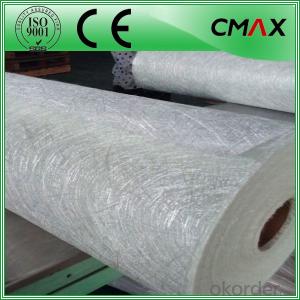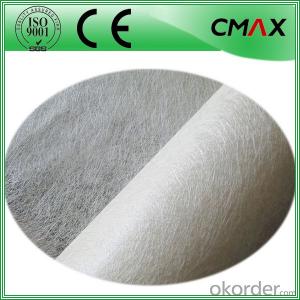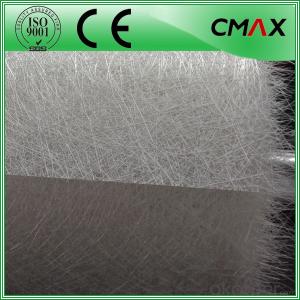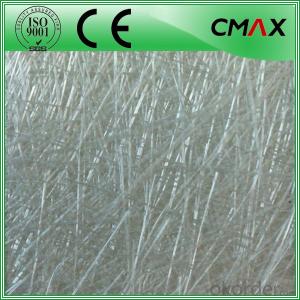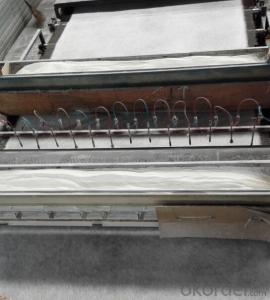E-glass Chopped Strand Mat , Fiberglass Mat for Sanitary Ware
- Loading Port:
- Shanghai
- Payment Terms:
- TT OR LC
- Min Order Qty:
- 1000 m.t
- Supply Capability:
- 1000000 m.t/month
OKorder Service Pledge
OKorder Financial Service
You Might Also Like
E-glass Chopped Strand Mat , Fiberglass Mat for Sanitary Ware
Introduction:
Chopped Strand Mat is characterized by good combination of resin, easy operation, good wet strength retention, good laminate transparency and low cost. It is suitable for the application by hand lay-up FRP moldings, such as, various sheets and panels, boat hulls, boat tubs, cooling towers, corrosion resistant, vehicles, etc.
Function:
Fiberglass chopped strand mat is chopped using the "E" chopped glass and emulsion adhesive bond. It is suitable for hand lay and can enhance the unsaturaed ployester resins.
Product Features:
Consistent thickness and stiffness;
Rapid impregnating and good compatibility with resin;
Superior wet through with less air trap;
Good mechanical properties and high strength of parts.
Superior acid corrosion resistance
Technical Data:
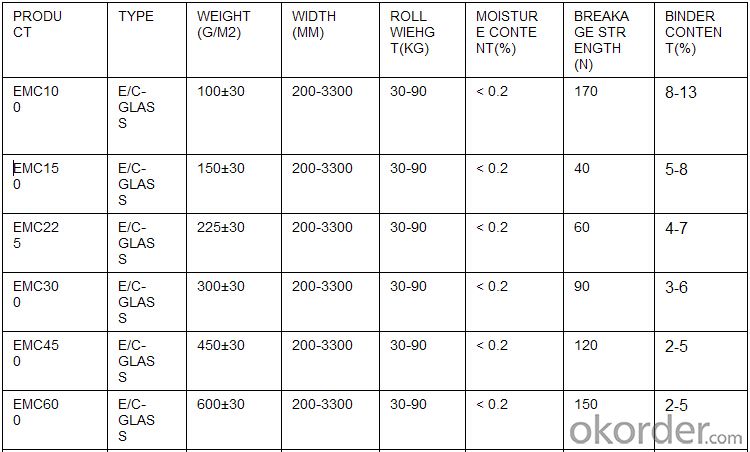
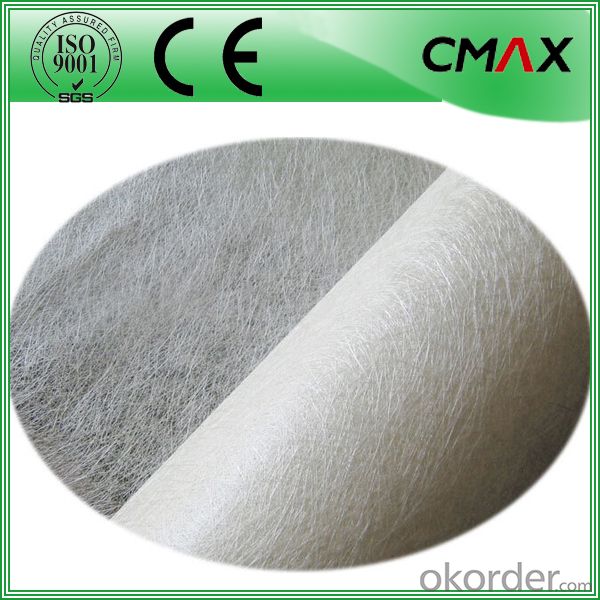
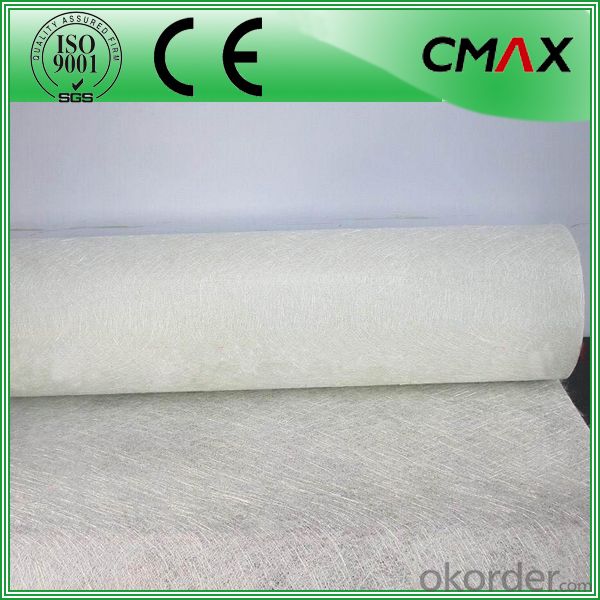
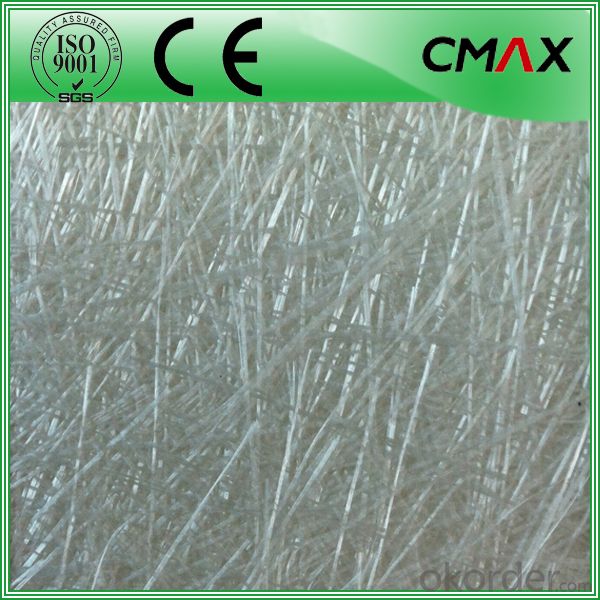
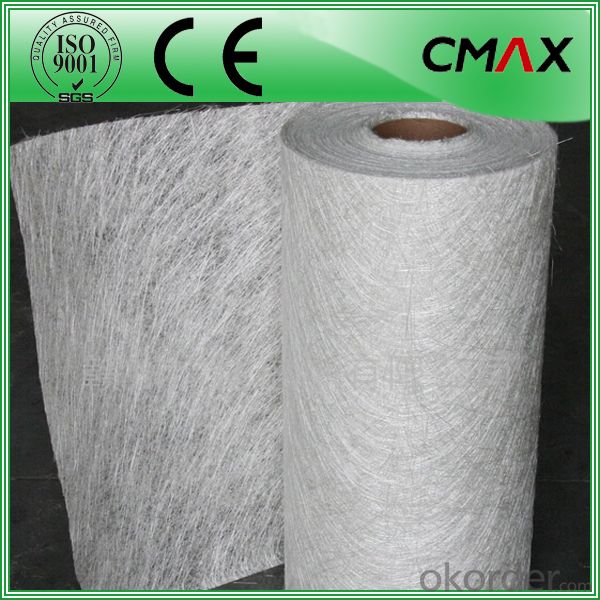
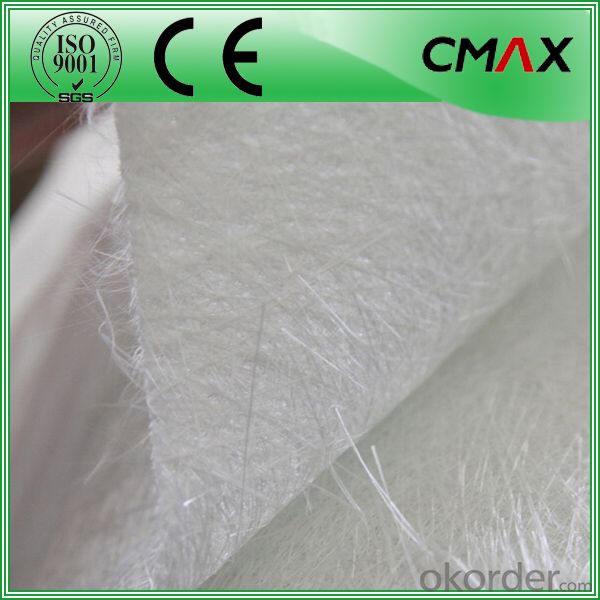
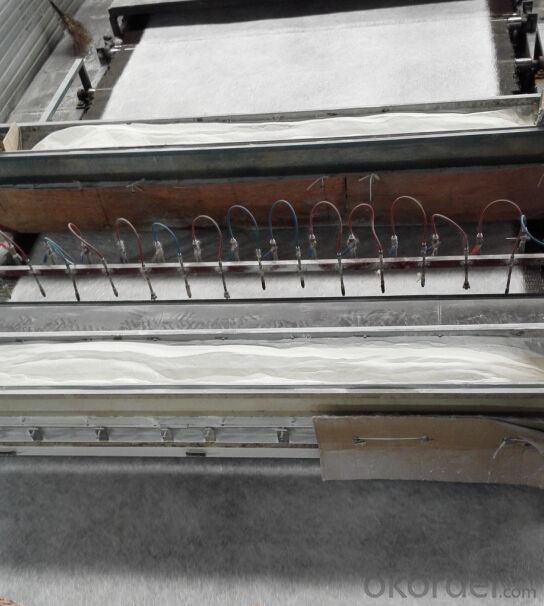
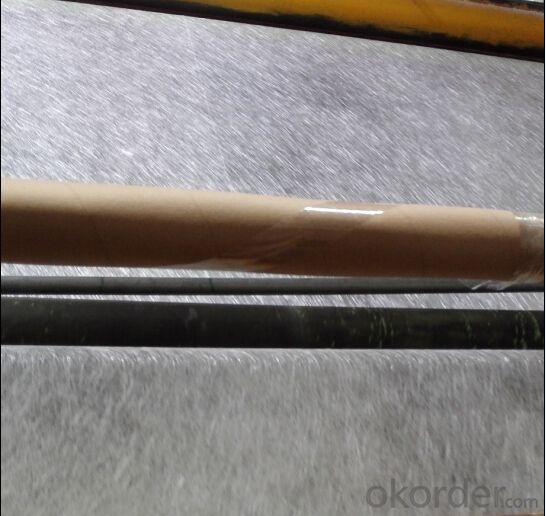
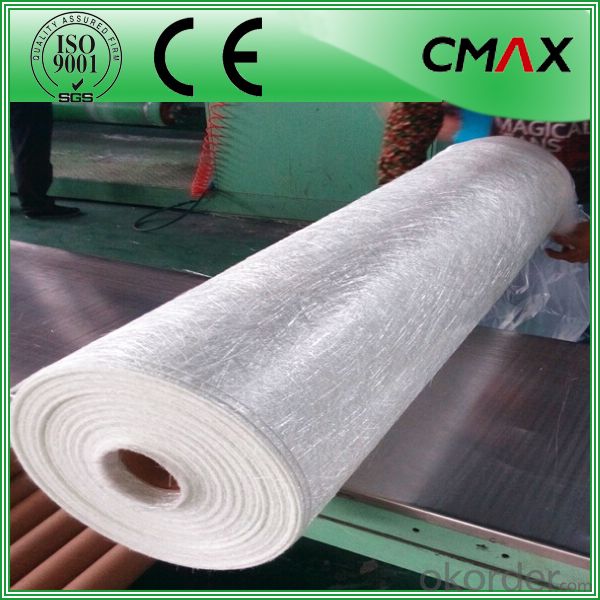
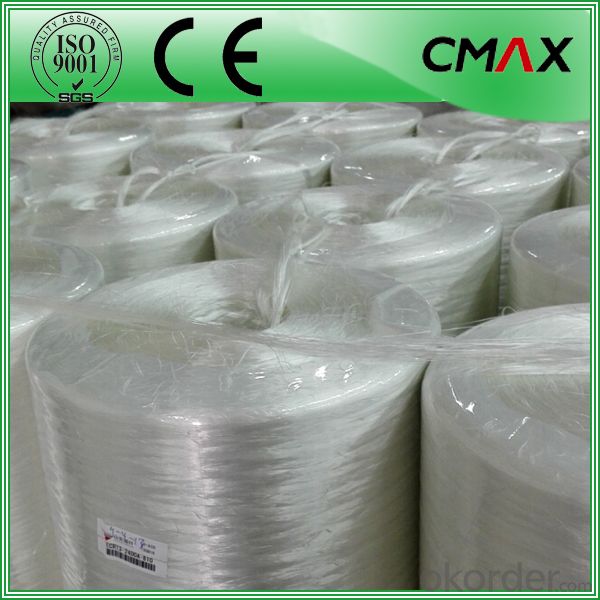
Packaging:
Product is manufactured in form of a roll wrap on a paper tube then after packed in a plastic bag and placed in a cardboard carton. Rolls can be loaded in a container directly or on pallets.
Deposited:
Chopped Strand Mat should be stored in dry, cool, clean and rainproof area. Recommended temperature range of storage is between 15-30 and relative humidity between 40%-70%.
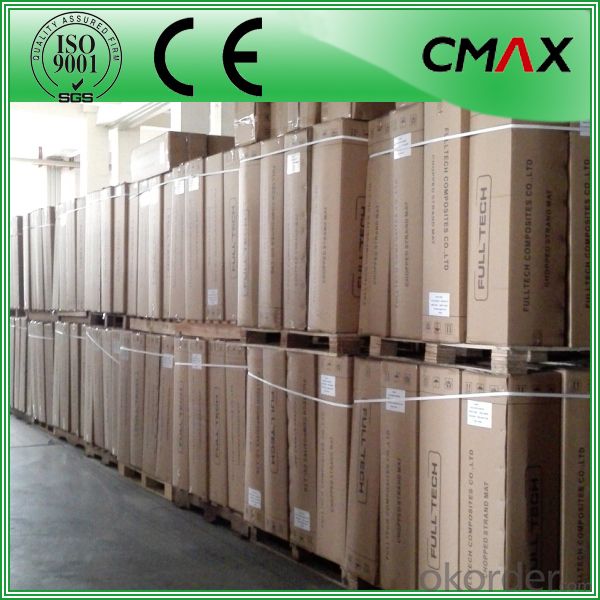
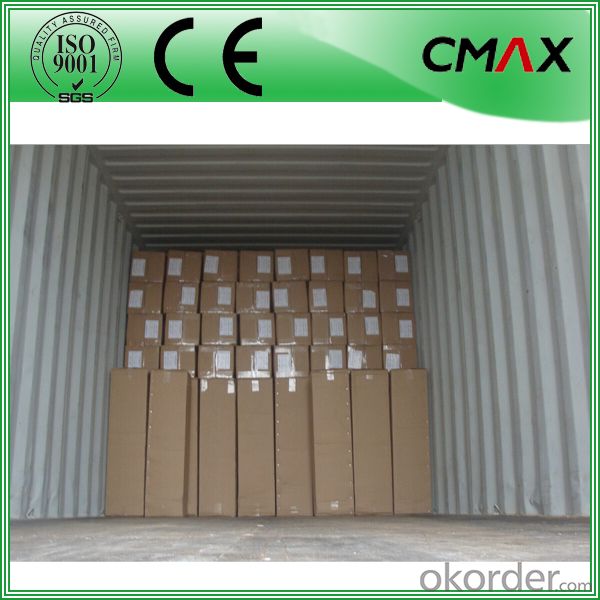
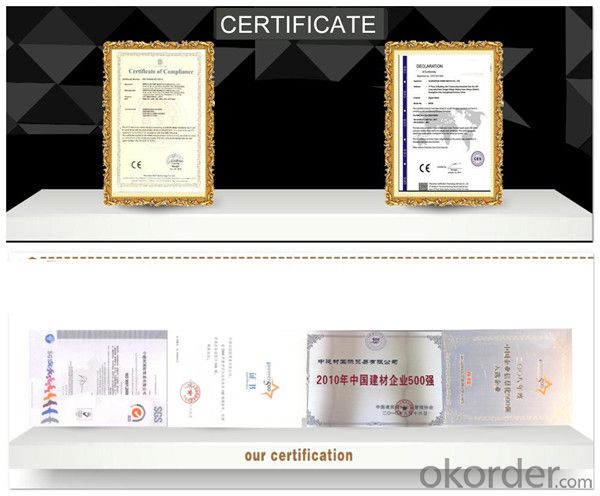
FAQ:
Is sample available ?
Yes, we provide the free samples, but customers themselves need pay the shipping fee
What's your MOQ?
Our MOQ is one 1*20' full container loading
How do you pack the fiberglass
(1) First, the mat is in roll packed in White PE fIlm.
(2) Then the rolls packed in the carton
4.Which knid of payment terms can you accept?
We can accept 30% prepayment, 70% payment before shippment. LC is also accepted
- Q:Can fiberglass mat tissue be used for ceiling insulation?
- No, fiberglass mat tissue is not suitable for ceiling insulation. While fiberglass mat tissue is commonly used in various construction applications, such as reinforcing plaster or other building materials, it is not designed or recommended for insulation purposes. When it comes to ceiling insulation, there are specific materials that are more suitable and effective, such as fiberglass batts, cellulose, or foam insulation. These materials are specifically engineered to provide thermal resistance and reduce the transfer of heat between the interior and exterior of a building. Using fiberglass mat tissue as ceiling insulation would not only be ineffective in providing proper insulation, but it may also pose safety risks. Fiberglass mat tissue is typically thin and lacks the necessary thickness to effectively insulate ceilings. Additionally, fiberglass insulation materials are known to release airborne particles and fibers, which can be hazardous to health if inhaled. Therefore, it is important to use the appropriate insulation materials that are specifically designed for ceiling insulation to ensure energy efficiency, comfort, and safety in your home or building.
- Q:Does fiberglass mat tissue have any fire-resistant properties?
- Yes, fiberglass mat tissue does have fire-resistant properties. Fiberglass is inherently fire-resistant due to its composition. It is made from a combination of glass fibers and a thermosetting resin, which gives it its fire-resistant properties. When exposed to high temperatures or flames, fiberglass mat tissue does not easily ignite or burn. Instead, it resists the spread of flames and can help to contain a fire. This makes fiberglass mat tissue a suitable material for applications where fire protection is required, such as insulation, fire barriers, and fireproof panels. However, it is important to note that while fiberglass is fire-resistant, it is not completely fireproof and can still melt or burn under extreme conditions.
- Q:What is the lifespan of fiberglass mat tissue?
- The lifespan of fiberglass mat tissue can vary depending on various factors such as the quality of the material, the conditions it is exposed to, and the level of maintenance it receives. However, fiberglass mat tissue is generally known for its durability and long lifespan. With proper installation and regular maintenance, fiberglass mat tissue can last for many decades. It is resistant to corrosion, moisture, and UV radiation, which helps to prolong its lifespan. Additionally, fiberglass mat tissue is often used in applications such as roofing, insulation, and reinforcement, where it is designed to withstand harsh conditions and provide long-term performance.
- Q:Can fiberglass mat tissue be used for composite panel manufacturing?
- Yes, fiberglass mat tissue can be used for composite panel manufacturing. Fiberglass mat tissue is a thin and lightweight material that is typically made from randomly oriented fiberglass strands bonded together with a binder. It is commonly used as a reinforcement material in composite manufacturing processes. When used in composite panel manufacturing, fiberglass mat tissue is typically combined with other materials such as resin and a core material to create a strong and durable panel. The mat tissue provides reinforcement and strength to the panel, helping to distribute loads and prevent cracking or delamination. Fiberglass mat tissue is known for its excellent tensile strength, dimensional stability, and resistance to chemicals, making it well-suited for use in composite panel manufacturing. It can be used in a variety of applications, including construction, transportation, marine, and aerospace industries. Overall, fiberglass mat tissue is a versatile and effective material that can be successfully used in the manufacturing of composite panels. Its properties and characteristics make it a reliable choice for creating strong and durable panels for various applications.
- Q:What are the potential limitations of using fiberglass mat tissue?
- Using fiberglass mat tissue comes with several potential limitations. To begin with, fiberglass mat tissue tends to be more brittle compared to other materials. This means that it may crack or break easily under certain conditions, especially if it is subjected to high levels of stress or impact. This brittleness can restrict its use in applications where durability and flexibility are important. Moreover, fiberglass mat tissue is not naturally resistant to moisture. If it is exposed to water or high humidity for extended periods, it can absorb moisture and lose its structural integrity. Consequently, it may not be suitable for use in environments where moisture resistance is crucial. In addition, working with fiberglass mat tissue can be challenging due to its sharp edges and fibers. Taking special precautions such as wearing protective clothing and using proper handling techniques is necessary to avoid injury. This can add complexity and cost to the use of fiberglass mat tissue in certain applications. Furthermore, cutting or manipulating fiberglass mat tissue can release fine particles or fibers into the air. Inhaling these particles can pose health risks, potentially leading to respiratory issues or irritation. To minimize these risks, it is essential to take proper safety measures such as using masks and ensuring adequate ventilation. Lastly, fiberglass mat tissue is relatively expensive compared to some alternative materials. Its production process involves multiple steps and specialized equipment, which contributes to higher costs. As a result, its use may be limited in applications where cost-effectiveness is a primary concern. In conclusion, while fiberglass mat tissue offers various advantages in terms of strength, insulation, and fire resistance, it is crucial to carefully consider its potential limitations before choosing it for a specific application.
- Q:Can fiberglass mat tissue be used for making boat hulls?
- Yes, fiberglass mat tissue can be used for making boat hulls. It is commonly used in boat manufacturing due to its strength, durability, and ability to provide structural reinforcement.
- Q:Can fiberglass mat tissue be used for repairing fiberglass shower stalls?
- Certainly! Fiberglass mat tissue is an excellent choice for fixing fiberglass shower stalls. It is a flexible material that is widely utilized for reinforcing and mending various fiberglass structures, such as shower stalls. Its purpose is to enhance the strength and resilience of the repaired section, guaranteeing a durable and dependable solution. By pairing fiberglass mat tissue with compatible fiberglass resin, one can effectively mend cracks, holes, and other impairments in fiberglass shower stalls. Nevertheless, it is vital to diligently adhere to the instructions and recommendations provided by the manufacturer to achieve optimal outcomes in terms of application and curing.
- Q:Can fiberglass mat tissue be used for repairing fiberglass structures?
- Yes, fiberglass mat tissue can be used for repairing fiberglass structures. Fiberglass mat tissue is a versatile material that is commonly used in the construction and repair of fiberglass structures. It is designed to provide strength, stability, and reinforcement to the damaged areas of the structure. The mat tissue is typically applied with resin, which helps to bond the fibers together and create a durable repair. It is especially effective for repairing cracks, holes, and other types of damage in fiberglass surfaces. Overall, fiberglass mat tissue is an excellent choice for repairing fiberglass structures due to its strength, flexibility, and ability to conform to various shapes and sizes.
- Q:Can fiberglass mat tissue be used for corrosion-resistant coatings?
- Corrosion-resistant coatings can utilize fiberglass mat tissue, a non-woven fabric composed of fine fiberglass strands bonded together using a binder. Due to its exceptional strength and corrosion resistance qualities, fiberglass mat tissue is commonly employed as a reinforcement material in composite applications. When integrated into corrosion-resistant coatings, fiberglass mat tissue acts as a protective barrier against the corrosive surroundings, safeguarding the underlying surface from deterioration caused by chemicals, moisture, and other corrosive substances. Moreover, fiberglass mat tissue can be impregnated with diverse resin systems that enhance its capacity to resist corrosion. These resin systems offer supplementary safeguard against specific corrosive agents or environments, consequently heightening the effectiveness of the coating. Furthermore, the flexibility and moldability of fiberglass mat tissue enable it to conform effortlessly to intricate shapes and surfaces, guaranteeing comprehensive coverage and protection against corrosion. In conclusion, fiberglass mat tissue is a dependable and efficient material for corrosion-resistant coatings. Its impressive strength, corrosion resistance, and compatibility with various resin systems make it a suitable choice for shielding surfaces in corrosive environments.
- Q:What is the expected lifespan of fiberglass mat tissue in chemical storage applications?
- The expected lifespan of fiberglass mat tissue in chemical storage applications can vary depending on several factors. These factors include the type of chemicals being stored, the concentration of the chemicals, and the specific conditions of the storage environment. Fiberglass mat tissue is commonly used in chemical storage applications due to its excellent resistance to corrosion and its ability to provide structural reinforcement. However, it is important to note that fiberglass mat tissue is not completely impervious to chemical degradation. In general, fiberglass mat tissue can withstand a wide range of chemicals and can have a relatively long lifespan when properly maintained. It is typically designed to last for several years, with some manufacturers offering warranties ranging from 10 to 20 years. However, certain aggressive chemicals or extreme storage conditions may accelerate the degradation process of fiberglass mat tissue. Chemicals with high acidity or alkalinity, extreme temperatures, or prolonged exposure to UV radiation can potentially reduce the lifespan of the material. To ensure the maximum lifespan of fiberglass mat tissue in chemical storage applications, it is essential to carefully select the appropriate type of fiberglass mat tissue that is specifically designed for the intended chemicals and storage conditions. Regular inspections, maintenance, and proper handling of the chemicals can also help extend the lifespan of the material. Ultimately, it is recommended to consult with the manufacturer or a qualified engineer to determine the expected lifespan of fiberglass mat tissue in a specific chemical storage application, as they can provide more accurate information based on the specific circumstances.
1. Manufacturer Overview |
|
|---|---|
| Location | |
| Year Established | |
| Annual Output Value | |
| Main Markets | |
| Company Certifications | |
2. Manufacturer Certificates |
|
|---|---|
| a) Certification Name | |
| Range | |
| Reference | |
| Validity Period | |
3. Manufacturer Capability |
|
|---|---|
| a)Trade Capacity | |
| Nearest Port | |
| Export Percentage | |
| No.of Employees in Trade Department | |
| Language Spoken: | |
| b)Factory Information | |
| Factory Size: | |
| No. of Production Lines | |
| Contract Manufacturing | |
| Product Price Range | |
Send your message to us
E-glass Chopped Strand Mat , Fiberglass Mat for Sanitary Ware
- Loading Port:
- Shanghai
- Payment Terms:
- TT OR LC
- Min Order Qty:
- 1000 m.t
- Supply Capability:
- 1000000 m.t/month
OKorder Service Pledge
OKorder Financial Service
Similar products
New products
Hot products
Related keywords
